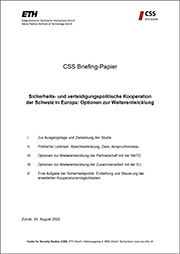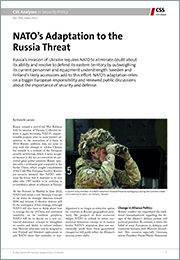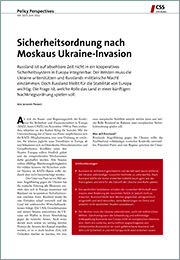Sicherheits- und verteidigungspolitische Kooperation der Schweiz in Europa: Optionen zur Weiterentwicklung
The Russian war of aggression against Ukraine is shaking the foundations of the post-1989 European security order. The states of Europe are re-emphasizing military preparedness as well as economic and social resilience. NATO is experiencing a renaissance as part of these efforts, as exemplified by the accession of Sweden and Finland. The EU appears to be adapting to the new situation as well, seeking a complimentary position vis-à-vis NATO.

These changes are affecting the planning parameters of Swiss security and defense policy in manifold and profound ways. A key aspect in this context is multilateral security and defense cooperation. On behalf of the Federal Department of Defense, Civil Protection and Sport (DDPS), CSS has over the past months prepared a briefing paper. It outlines how Switzerland can position itself actively and expediently in this increasingly important policy field.
In appreciation of the possibilities and limitations implicit to Swiss neutrality and the conscription-based recruitment model of the Swiss Armed Forces, the briefing paper identifies options for the further development of Switzerland’s relationship to NATO and EU, primarily in the area of defense policy. Respective considerations are based on CSS's own analyses as well as numerous confidential background talks at the national (representatives of DDPS-internal planning bodies as well as of the Swiss missions to NATO and the EU) and international level (representatives of NATO, EU and some member states). The paper was prepared independently of the mandator and complements the external page 2022 Supplementary Report to the 2021 Security Policy Report.
Relevant further publications by the CSS
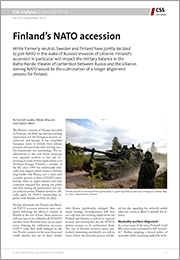
CSS Analyses in Security Policy: No. 310: Finland’s NATO accession
by Eemeli Isoaho, Niklas Masuhr and Fabien Merz
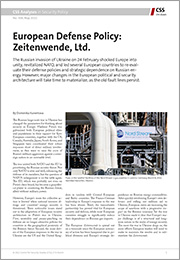
CSS Analyses in Security Policy: No. 304: European Defense Policy: Zeitenwende, Ltd.
by Dominika Kunertova
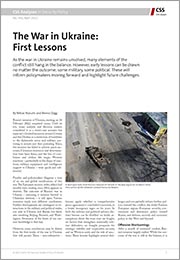
CSS Analyses in Security Policy: No. 301: The War in Ukraine: First Lessons
by Niklas Masuhr and Benno Zogg
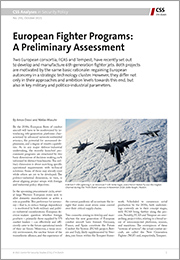
CSS Analyses in Security Policy: No. 291: European Fighter Programs: A Preliminary Assessment
by Amos Dossi and Niklas Masuhr
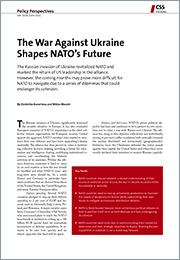
CSS Policy Perspectives 10, 4: The War Against Ukraine Shapes NATO’s Future
by Dominika Kunertova and Niklas Masuhr
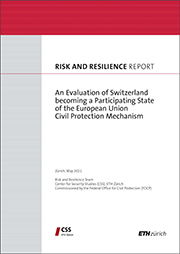
CSS Risk and Resilience Reports: An Evaluation of Switzerland becoming a Participating State of the European Union Civil Protection Mechanism
by Christine Eriksen, Andrin Hauri, Jan Thiel and Benjamin Scharte
